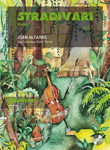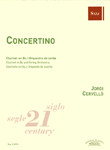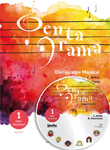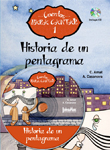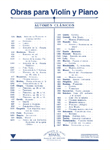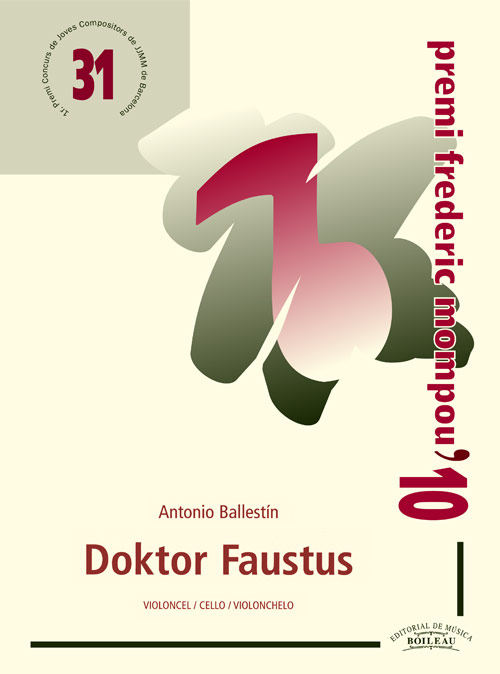WORKS
- Genre
-
Musical education
- Choir
- Counterpoint
- Dictation
- Direction
- Exam study manuals
- General music pedagogy
- Harmony
- Hearing
- Illustrations / Posters
- Improvisation / Sight reading
- Instrument methods
- Instrument pedagogy
- Instrumental study repertoire
- Instrumentation and orquestration
- Musical language
- Solfège
- Templates
- Theory and analysis
-
Incidental music
-
Lined paper
-
Flamenco
-
Religious music
-
Classical / contemporary
-
Modern music
-
Folk music / traditional
-
Musicology
-
Divulgation
-
Games and hobbies
-
Music therapy
-
Children / Youth
-
- Instruments
- Ensemble
- Difficulty level
- Period
- Genre
SOPORTE
Search
Find here: books, scores, composers, digital pieces, cd's
Best-selling works
Our classics

Newsletter
I wish to be informed of the news about your music
We have received your e-mail correctly
Multimedia
Doktor Faustus
Violonchelo
BALLESTÍN, AntonioBALLESTÍN, AntonioBALLESTÍN, AntonioReg.: J.1018
13,20 €
P.V.P. (VAT included 4%)
Add to cart
- Review: GUERRERO, Alfredo
- Ensemble: Solo.
- Genres: Classical / contemporary: Solos.
- Product format: Partitura + particellas
- Difficulty level: Advanced-superior
- Period: 2nd half S. XX - XXI
- Publishing house: Editorial Boileau
- Collection: Premi Frederic Mompou
- No. of pages: 20+4
- Measure: 31,00 x 23,00 cm
- Lenght: 10'
- ISMN: 979-0-3503-1019-5
- Available in digital: No
- Available for rent: No
In 1948 Thomas Mann sent a copy of his book Doktor Faustus to Arnold Schoenberg, with a dedication in which he confessed that he had been inspired by him when creating the character of Adrian Leverkühn. But far from being flattered, Schoenberg did not like the idea that people would think about dodecaphonism as an invention of the Devil and not one of his own. It was not the first time Thomas Mann was inspired by the intellectual effort of a contemporary composer and his agonies on creation to build up one of his masterpieces. The main character of Death in Venice, the writer Gustav Aschenbach and his creative block, depicted by its author as a «poet of all those working on the brink of exhaustion», is inspired by Gustav Mahler. Thomas Mann belonged to a family that shared the same love for music as for suicide. «I am not a visual man, but a musician who moved into literature», he wrote in 1947. Both sides are portrayed in what for me are his two most amazing and captivating works. The agony of creativity in Leverkühn and Aschenbach dominates in both novels above the more apparent issues, a non recognized homosexuality and the possession of hell, in order to portray one of the tragedies of contemporary musical creation: How to avoid repetition without turning your back on the audience?
Antonio Ballestín, skilful composer, he travels down that narrow path, so indefinite in its way and its goal, which any artist, no matter what they say, seeks. Just as Mann defines himself as a musician who moved into literature, Antonio Ballestín is a writer who moved into music. I admire his decision to be a narrative composer. This score is good proof of it: structured in nine episodes, it is faithful to Mann’s text and its dramatic and narrative patterns, leaving the audience a sense of being satisfied from the beginning till the end: Diabolical Possession; Return to Consciousness; Lament; Dialectic Meditation; Exposure to Devil and Victory of Him; Melancholy and Delusions; Explosion of Madness, Schizophrenia and Demonic Laughter; Surrender of Goodness. These are the narrative parts, which, I know, went through a rigorous process of articulation. I also sense that Ballestín succumbed to certain identification with Leverkühn during his personal search for this score and that his self-imposed demands opened for him a door to new material and possibilities that he did not know he possessed. To some extent, this score is a privilege for us all, apart from its obvious musical attributes, because it allows us to witness a promising career.
Jesús Gil Vilda
Writer
Comentaris / Comments / Comentarios
Doktor Faustus: partitura / score
Biografia / Biography / Biografía

